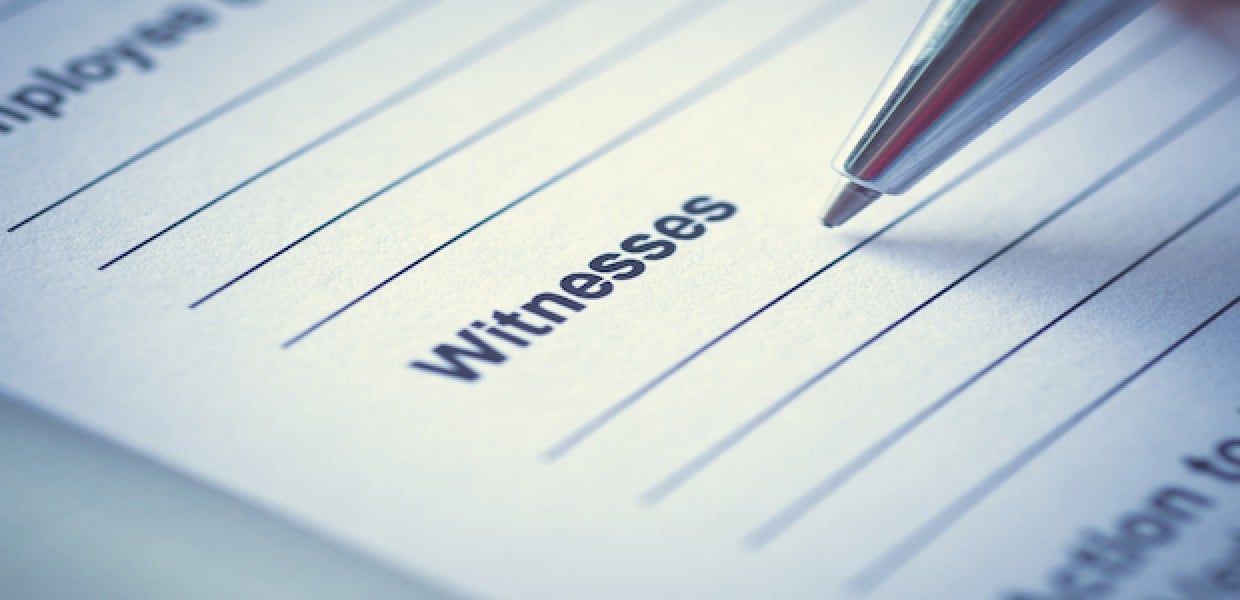Our lawyers specialise in litigation. We will guide you through any stage in your litigation process. Whether you are a litigant in person seeking legal advice or you have instructed solicitors and are seeking a second opinion on strategy. We explain below the importance of witness statements in litigation and the steps to be taken to prepare witness evidence.
What is a witness statement?
A witness statement is a formal document that contains a witness’s account of the facts relating to a particular dispute. The purpose of a witness statement is to provide to the Court (and opponent) written evidence to support a particular party’s case. Usually all parties in litigation will be required to produce a witness statement.
A witness statement is a crucial piece of evidence that will be referred to and relied upon at trial. Therefore, it is important to ensure that your witness statement is both accurate and comprehensive.
Preparing your witness statement
Witness statements should be prepared in compliance and accordance with Part 32 of the Civil Procedure Rules and Practice Direction 32. The Court also provides additional guidance and a template for preparing witness statements.
The first step will be to go through your recollection of all of the relevant facts and events with which you have been involved. This chronology provides a good foundation for your witness statement. The witness statement must be in your own words. Therefore, you must ensure that you understand what is included in your witness statement and that the contents of the witness statement accurately reflect your recollection of the facts.
Paragraphs 17.1 to 20.3 of Practice Direction 32 set out the format and requirements of a witness statement which must be adhered to. If your witness statement does not comply with Part 32 in relation to its form, the Court may refuse to admit it as evidence and may refuse to allow the costs arising from its preparation (CPR 32 25.1) so it is important that witness statements are prepared properly.
How do I refer to documents in my witness statement?
If you refer to any documents in your witness statement, these should be collated in a supporting exhibit, pursuant to paragraphs 11.1 to 15.4 of Practice Direction 32, clearly ordered and paginated for the Court.
What is a statement of truth?
In litigation, any statement of case or witness statement must be verified by a statement of truth. Part 22 of the Civil Procedure Rules sets out provisions for statements of truth.
The purpose of the statement of truth is to confirm that you believe that the facts stated in the entire witness statement are true.
If a witness statement is not verified by a statement of truth, then it may not be admissible as evidence. There are also penalties for verifying false statements with a statement of truth.
Consequences of inaccurate evidence verified by a statement of truth
Signing a statement of truth or allowing a solicitor to sign where you know that a document contains a false statement may lead to you being contempt of court (CPR 32.14).
Part VI of Part 81 of the Civil Procedural Rules contains rules about committal applications in relation to making, or causing to be made a false statement in a document verified by a statement of truth without an honest belief in its truth.
Can I sign a witness statement electronically?
This issue has been considered in detail however CPR 5.3 provides that an electronic signature is sufficient.
Exchange of witness statements
The Court usually orders the simultaneous exchange of witness statements with the other party or parties in the proceedings in addition to both parties’ evidence being filed at Court.
You should consider your opponent’s witness evidence carefully, as if there are any factual inaccuracies in your opponent’s evidence, it may be necessary to prepare a supplemental witness statement in order to deal with these points earlier than the trial.
Consequences of failure to serve witness statement
If a witness statement for use at trial is not served within the time specified by the court, then the witness may not be called to give oral evidence unless the court gives permission. If you fail to comply with a court deadline or court requirement, you will need to apply to the Court for permission for relief from sanctions.
Preparing for and attending the hearing
As trial approaches, the Court will require determine a timetable which will set out how long you are likely to be needed in Court, the layout of the Court and how to address the Judge.
Where a witness is called to give evidence at trial, he may be cross examined on his witness statement.
You will need to prepare for giving evidence at the trial by carefully reviewing your statement and any relevant documents referred to in it.
Instruct expert litigation solicitors
We ensure that we provide the best possible outcome for our clients by conducting in depth investigation and research into the realistic prospects of a case before selecting the appropriate course of action in order to reduce time and expense. We are extremely experienced and capable at navigating our clients through the litigation process.
The information published on this website is: (a) for reference purposes only; (b) does not create a contractual relationship; (c) does not constitute legal advice and should not be relied upon as such; and (d) is not a complete or authoritative statement of the law. Specific legal advice about your circumstances should always be sought.
